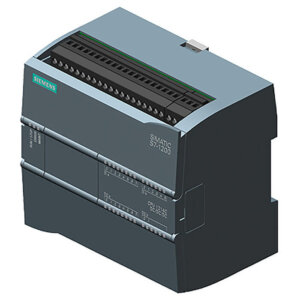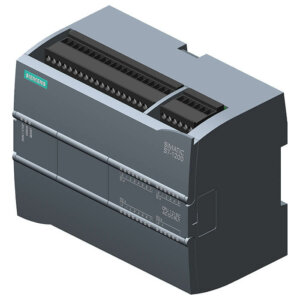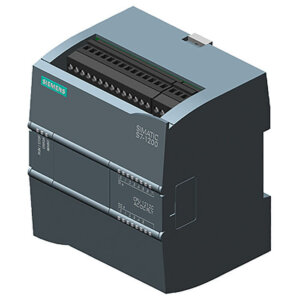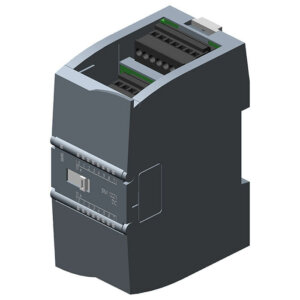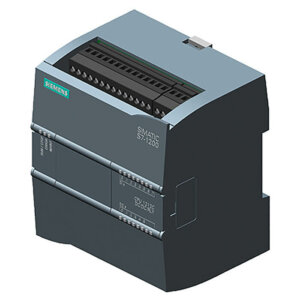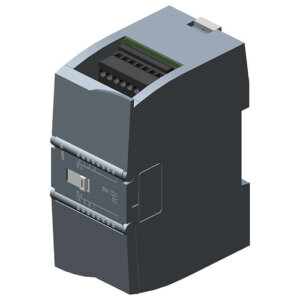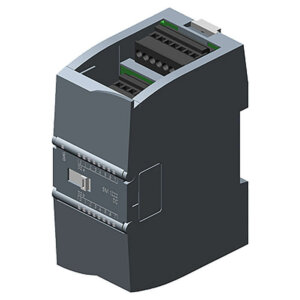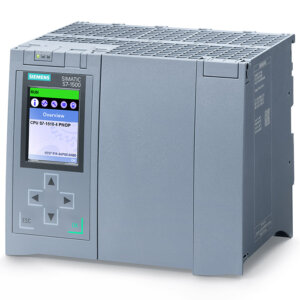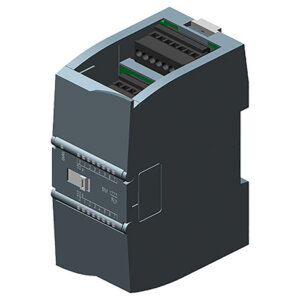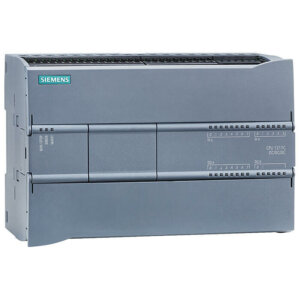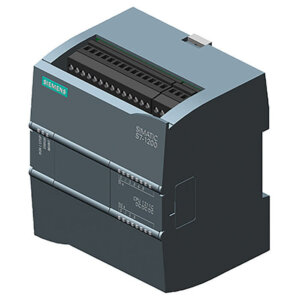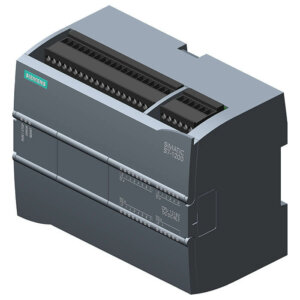6ES7511-1AK02-0AB0 CPU 1511-1 PN PLC S7-1500 SIEMENS
15.820.000 ₫
SIMATIC S7-1500, CPU 1511-1 PN, Bộ nhớ: 150 KB cho chương trình và 1 MB cho dữ liệu, 1. interface: PROFINET IRT với 2 cổng chuyển mạch, hiệu suất bit 60 NS, cần thêm thẻ nhớ SIMATIC để hoạt động.
Tải về datasheet (pdf): Tại đây!
6ES7511-1AK02-0AB0 là bộ điều khiển khả trình logic (PLC) nâng cao do hãng SIEMENS phát triển & sản xuất với thương hiệu SIMATIC thuộc dòng PLC S7-1500. 6ES7511-1AK02-0AB0 được MESIDAS GROUP phát triển và phân phối rộng rãi trên thị trường Việt Nam. Nếu quý khách hàng đang có nhu cầu cần tư vấn hay mua bộ điều khiển 6ES7511-1AK02-0AB0 thì hãy liên hệ MESIDAS GROUP để được hỗ trợ một cách tận tâm, nhanh chóng và hiệu quả nhé.
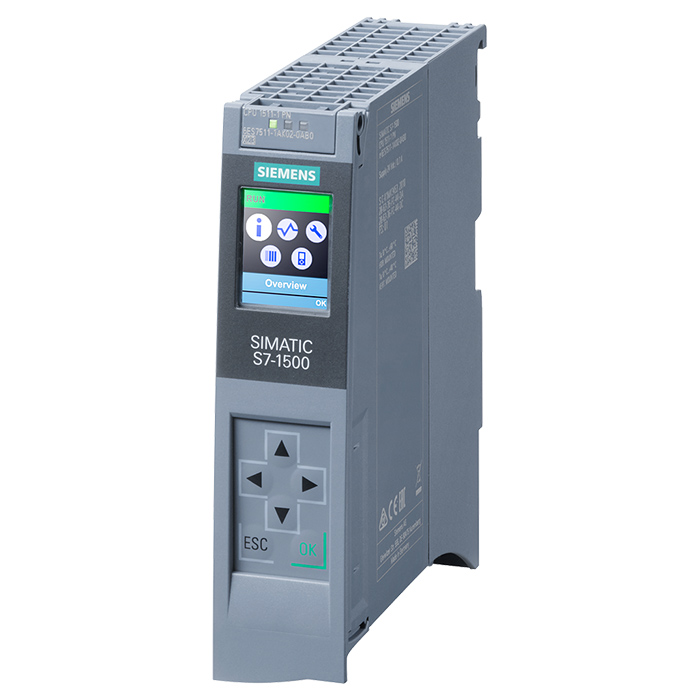
Bảng tóm tắt thông số kỹ thuật 6ES7511-1AK02-0AB0
SIMATIC S7-1500, CPU 1511-1 PN, Bộ nhớ: 150 KB cho chương trình và 1 MB cho dữ liệu, 1. interface: PROFINET IRT với 2 cổng chuyển mạch, hiệu suất bit 60 NS, cần thêm thẻ nhớ SIMATIC để hoạt động.
| Mã sản phẩm | 6ES7511-1AK02-0AB0 |
| Dòng sản phẩm | SIMATIC S7-1500, CPU 1511-1 PN |
| Hãng sản xuất | SIEMENS |
| Hiệu suất bit hoạt động | 60 ns |
| Giao diện | PROFINET IRT |
| Bộ nhớ | 150 KB chương trình và 1 MB dữ liệu |
| Nguồn cung cấp | 24 V DC (19.2-28.8 V DC) |
| Kích thước (RxCxS) | 35x147x129 mm |
| Trọng lượng | 405 g |
Phụ kiện (tùy chọn) cho 6ES7511-1AK02-0AB0
- 6ES7954-8LC03-0AA0: SIMATIC S7, thẻ nhớ cho S7-1×00 CPU/SINAMICS, 3, 3 V Flash, 4 MB
- 6ES7954-8LE03-0AA0: SIMATIC S7, thẻ nhớ cho S7-1X00 CPU/SINAMICS, 3,3 V FLASH, 12 MBYTE
- 6ES7954-8LF03-0AA0: SIMATIC S7, thẻ nhớ cho S7-1X00 CPU/SINAMICS, 3,3 V FLASH, 24 MBYTE
- 6ES7954-8LL03-0AA0: SIMATIC S7, thẻ nhớ cho S7-1X00 CPU, 3,3 V FLASH, 256 MBYTE
- 6ES7954-8LP02-0AA0: SIMATIC S7, thẻ nhớ cho S7-1x 00 CPU, 3, 3V Flash, 2 GByte
- 6ES7954-8LT03-0AA0: SIMATIC S7, thẻ nhớ cho S7-1×00 CPU, 3, 3V Flash, 32 GB
Bảng chi tiết thông số kỹ thuật 6ES7511-1AK02-0AB0
| Article number | 6ES7511-1AK02-0AB0 |
| CPU 1511-1PN, 150KB Program, 1MB Data | |
| General information | |
| Product type designation | CPU 1511-1 PN |
| HW functional status | FS03 |
| Firmware version | V2.8 |
| Product function | |
| I&M data | Yes; I&M0 to I&M3 |
| Isochronous mode | Yes; Distributed and central; with minimum OB 6x cycle of 625 µs (distributed) and 1 ms (central) |
| Engineering with | |
| STEP 7 TIA Portal configurable/integrated from version | V16 (FW V2.8) / V15 (FW V2.5) or higher; with older TIA Portal versions configurable as 6ES7511-1AK01-0AB0 |
| Configuration control | |
| via dataset | Yes |
| Display | |
| Screen diagonal [cm] | 3.45 cm |
| Control elements | |
| Number of keys | 8 |
| Mode buttons | 2 |
| Supply voltage | |
| Type of supply voltage | 24 V DC |
| permissible range, lower limit (DC) | 19.2 V |
| permissible range, upper limit (DC) | 28.8 V |
| Reverse polarity protection | Yes |
| Mains buffering | |
| Mains/voltage failure stored energy time | 5 ms |
| Repeat rate, min. | 1/s |
| Input current | |
| Current consumption (rated value) | 0.7 A |
| Current consumption, max. | 0.95 A |
| Inrush current, max. | 1.9 A; Rated value |
| I²t | 0.02 A²·s |
| Power | |
| Infeed power to the backplane bus | 10 W |
| Power consumption from the backplane bus (balanced) | 5.5 W |
| Power loss | |
| Power loss, typ. | 5.7 W |
| Memory | |
| Number of slots for SIMATIC memory card | 1 |
| SIMATIC memory card required | Yes |
| Work memory | |
| integrated (for program) | 150 kbyte |
| integrated (for data) | 1 Mbyte |
| Load memory | |
| Plug-in (SIMATIC Memory Card), max. | 32 Gbyte |
| Backup | |
| maintenance-free | Yes |
| CPU processing times | |
| for bit operations, typ. | 60 ns |
| for word operations, typ. | 72 ns |
| for fixed point arithmetic, typ. | 96 ns |
| for floating point arithmetic, typ. | 384 ns |
| CPU-blocks | |
| Number of elements (total) | 2 000; Blocks (OB, FB, FC, DB) and UDTs |
| DB | |
| Number range | 1 … 60 999; subdivided into: number range that can be used by the user: 1 … 59 999, and number range of DBs created via SFC 86: 60 000 … 60 999 |
| Size, max. | 1 Mbyte; For DBs with absolute addressing, the max. size is 64 KB |
| FB | |
| Number range | 0 … 65 535 |
| Size, max. | 150 kbyte |
| FC | |
| Number range | 0 … 65 535 |
| Size, max. | 150 kbyte |
| OB | |
| Size, max. | 150 kbyte |
| Number of free cycle OBs | 100 |
| Number of time alarm OBs | 20 |
| Number of delay alarm OBs | 20 |
| Number of cyclic interrupt OBs | 20; With minimum OB 3x cycle of 500 µs |
| Number of process alarm OBs | 50 |
| Number of DPV1 alarm OBs | 3 |
| Number of isochronous mode OBs | 2 |
| Number of technology synchronous alarm OBs | 2 |
| Number of startup OBs | 100 |
| Number of asynchronous error OBs | 4 |
| Number of synchronous error OBs | 2 |
| Number of diagnostic alarm OBs | 1 |
| Nesting depth | |
| per priority class | 24 |
| Counters, timers and their retentivity | |
| S7 counter | |
| Number | 2 048 |
| Retentivity | |
| — adjustable | Yes |
| IEC counter | |
| Number | Any (only limited by the main memory) |
| Retentivity | |
| — adjustable | Yes |
| S7 times | |
| Number | 2 048 |
| Retentivity | |
| — adjustable | Yes |
| IEC timer | |
| Number | Any (only limited by the main memory) |
| Retentivity | |
| — adjustable | Yes |
| Data areas and their retentivity | |
| Retentive data area (incl. timers, counters, flags), max. | 128 kbyte; In total; available retentive memory for bit memories, timers, counters, DBs, and technology data (axes): 88 KB |
| Extended retentive data area (incl. timers, counters, flags), max. | 1 Mbyte; When using PS 6 0W 24/48/60 V DC HF |
| Flag | |
| Size, max. | 16 kbyte |
| Number of clock memories | 8; 8 clock memory bit, grouped into one clock memory byte |
| Data blocks | |
| Retentivity adjustable | Yes |
| Retentivity preset | No |
| Local data | |
| per priority class, max. | 64 kbyte; max. 16 KB per block |
| Address area | |
| Number of IO modules | 1 024; max. number of modules / submodules |
| I/O address area | |
| Inputs | 32 kbyte; All inputs are in the process image |
| Outputs | 32 kbyte; All outputs are in the process image |
| per integrated IO subsystem | |
| — Inputs (volume) | 8 kbyte |
| — Outputs (volume) | 8 kbyte |
| per CM/CP | |
| — Inputs (volume) | 8 kbyte |
| — Outputs (volume) | 8 kbyte |
| Subprocess images | |
| Number of subprocess images, max. | 32 |
| Hardware configuration | |
| Number of distributed IO systems | 32; A distributed I/O system is characterized not only by the integration of distributed I/O via PROFINET or PROFIBUS communication modules, but also by the connection of I/O via AS-i master modules or links (e.g. IE/PB-Link) |
| Number of DP masters | |
| Via CM | 4; A maximum of 4 CMs/CPs (PROFIBUS, PROFINET, Ethernet) can be inserted in total |
| Number of IO Controllers | |
| integrated | 1 |
| Via CM | 4; A maximum of 4 CMs/CPs (PROFIBUS, PROFINET, Ethernet) can be inserted in total |
| Rack | |
| Modules per rack, max. | 32; CPU + 31 modules |
| Number of lines, max. | 1 |
| PtP CM | |
| Number of PtP CMs | the number of connectable PtP CMs is only limited by the number of available slots |
| Time of day | |
| Clock | |
| Type | Hardware clock |
| Backup time | 6 wk; At 40 °C ambient temperature, typically |
| Deviation per day, max. | 10 s; Typ.: 2 s |
| Operating hours counter | |
| Number | 16 |
| Clock synchronization | |
| supported | Yes |
| in AS, master | Yes |
| in AS, slave | Yes |
| on Ethernet via NTP | Yes |
| Interfaces | |
| Number of PROFINET interfaces | 1 |
| 1. Interface | |
| Interface types | |
| RJ 45 (Ethernet) | Yes; X1 |
| Number of ports | 2 |
| integrated switch | Yes |
| Protocols | |
| IP protocol | Yes; IPv4 |
| PROFINET IO Controller | Yes |
| PROFINET IO Device | Yes |
| SIMATIC communication | Yes |
| Open IE communication | Yes; Optionally also encrypted |
| Web server | Yes |
| Media redundancy | Yes |
| PROFINET IO Controller | |
| Services | |
| — PG/OP communication | Yes |
| — Isochronous mode | Yes |
| — Direct data exchange | Yes; Requirement: IRT and isochronous mode (MRPD optional) |
| — IRT | Yes |
| — PROFIenergy | Yes; per user program |
| — Prioritized startup | Yes; Max. 32 PROFINET devices |
| — Number of connectable IO Devices, max. | 128; In total, up to 256 distributed I/O devices can be connected via AS-i, PROFIBUS or PROFINET |
| — Of which IO devices with IRT, max. | 64 |
| — Number of connectable IO Devices for RT, max. | 128 |
| — of which in line, max. | 128 |
| — Number of IO Devices that can be simultaneously activated/deactivated, max. | 8; in total across all interfaces |
| — Number of IO Devices per tool, max. | 8 |
| — Updating times | The minimum value of the update time also depends on communication share set for PROFINET IO, on the number of IO devices, and on the quantity of configured user data |
| Update time for IRT | |
| — for send cycle of 250 µs | 250 μs to 4 ms; Note: In the case of IRT with isochronous mode, the minimum update time of 625 µs of the isochronous OB is decisive |
| — for send cycle of 500 µs | 500 μs to 8 ms; Note: In the case of IRT with isochronous mode, the minimum update time of 625 µs of the isochronous OB is decisive |
| — for send cycle of 1 ms | 1 ms to 16 ms |
| — for send cycle of 2 ms | 2 ms to 32 ms |
| — for send cycle of 4 ms | 4 ms to 64 ms |
| — With IRT and parameterization of “odd” send cycles | Update time = set “odd” send clock (any multiple of 125 µs: 375 µs, 625 µs … 3 875 µs) |
| Update time for RT | |
| — for send cycle of 250 µs | 250 µs to 128 ms |
| — for send cycle of 500 µs | 500 µs to 256 ms |
| — for send cycle of 1 ms | 1 ms to 512 ms |
| — for send cycle of 2 ms | 2 ms to 512 ms |
| — for send cycle of 4 ms | 4 ms to 512 ms |
| PROFINET IO Device | |
| Services | |
| — PG/OP communication | Yes |
| — Isochronous mode | No |
| — IRT | Yes |
| — PROFIenergy | Yes; per user program |
| — Shared device | Yes |
| — Number of IO Controllers with shared device, max. | 4 |
| — Asset management record | Yes; per user program |
| Interface types | |
| RJ 45 (Ethernet) | |
| 100 Mbps | Yes |
| Autonegotiation | Yes |
| Autocrossing | Yes |
| Industrial Ethernet status LED | Yes |
| Protocols | |
| Number of connections | |
| Number of connections, max. | 96; via integrated interfaces of the CPU and connected CPs / CMs |
| Number of connections reserved for ES/HMI/web | 10 |
| Number of connections via integrated interfaces | 64 |
| Number of S7 routing paths | 16 |
| Redundancy mode | |
| H-Sync forwarding | Yes |
| Media redundancy | |
| — MRP | Yes; as MRP redundancy manager and/or MRP client; max. number of devices in the ring: 50 |
| — MRPD | Yes; Requirement: IRT |
| — Switchover time on line break, typ. | 200 ms; For MRP, bumpless for MRPD |
| — Number of stations in the ring, max. | 50 |
| SIMATIC communication | |
| S7 routing | Yes |
| S7 communication, as server | Yes |
| S7 communication, as client | Yes |
| User data per job, max. | See online help (S7 communication, user data size) |
| Open IE communication | |
| TCP/IP | Yes |
| — Data length, max. | 64 kbyte |
| — several passive connections per port, supported | Yes |
| ISO-on-TCP (RFC1006) | Yes |
| — Data length, max. | 64 kbyte |
| UDP | Yes |
| — Data length, max. | 2 kbyte; 1 472 bytes for UDP broadcast |
| — UDP multicast | Yes; Max. 5 multicast circuits |
| DHCP | No |
| SNMP | Yes |
| DCP | Yes |
| LLDP | Yes |
| Web server | |
| HTTP | Yes; Standard and user pages |
| HTTPS | Yes; Standard and user pages |
| OPC UA | |
| Runtime license required | Yes; “Small” license required |
| OPC UA Client | Yes |
| — Application authentication | Yes |
| — Security policies | Available security policies: None, Basic128Rsa15, Basic256Rsa15, Basic256Sha256 |
| — User authentication | “anonymous” or by user name & password |
| — Number of connections, max. | 4 |
| — Number of nodes of the client interfaces, max. | 1 000 |
| — Number of elements for one call of OPC_UA_NodeGetHandleList/ OPC_UA_ReadList/ OPC_UA_WriteList, max. | 300 |
| — Number of elements for one call of OPC_UA_NameSpaceGetIndexList, max. | 20 |
| — Number of elements for one call of OPC_UA_MethodGetHandleList, max. | 100 |
| — Number of simultaneous calls of the client instructions per connection (except OPC_UA_ReadList, OPC_UA_WriteList, OPC_UA_MethodCall), max. | 1 |
| — Number of simultaneous calls of the client instructions OPC_UA_ReadList, OPC_UA_WriteList and OPC_UA_MethodCall, max. | 5 |
| — Number of registerable nodes, max. | 5 000 |
| — Number of registerable method calls of OPC_UA_MethodCall, max. | 100 |
| — Number of inputs/outputs when calling OPC_UA_MethodCall, max. | 20 |
| OPC UA Server | Yes; Data access (read, write, subscribe), method call, custom address space |
| — Application authentication | Yes |
| — Security policies | Available security policies: None, Basic128Rsa15, Basic256Rsa15, Basic256Sha256 |
| — User authentication | “anonymous” or by user name & password |
| — Number of sessions, max. | 32 |
| — Number of accessible variables, max. | 50 000 |
| — Number of registerable nodes, max. | 10 000 |
| — Number of subscriptions per session, max. | 20 |
| — Sampling interval, min. | 100 ms |
| — Publishing interval, min. | 500 ms |
| — Number of server methods, max. | 20 |
| — Number of inputs/outputs per server method, max. | 20 |
| — Number of monitored items, max. | 1 000; for 1 s sampling interval and 1 s send interval |
| — Number of server interfaces, max. | 10; or 20, depending on type of server interface |
| — Number of nodes for user-defined server interfaces, max. | 1 000 |
| Further protocols | |
| MODBUS | Yes; MODBUS TCP |
| Isochronous mode | |
| Equidistance | Yes |
| S7 message functions | |
| Number of login stations for message functions, max. | 32 |
| Program alarms | Yes |
| Number of configurable program messages, max. | 5 000; Program messages are generated by the “Program_Alarm” block, ProDiag or GRAPH |
| Number of loadable program messages in RUN, max. | 2 500 |
| Number of simultaneously active program alarms | |
| Number of program alarms | 600 |
| Number of alarms for system diagnostics | 100 |
| Number of alarms for motion technology objects | 80 |
| Test commissioning functions | |
| Joint commission (Team Engineering) | Yes; Parallel online access possible for up to 5 engineering systems |
| Status block | Yes; Up to 8 simultaneously (in total across all ES clients) |
| Single step | No |
| Number of breakpoints | 8 |
| Status/control | |
| Status/control variable | Yes |
| Variables | Inputs/outputs, memory bits, DBs, distributed I/Os, timers, counters |
| Number of variables, max. | |
| — of which status variables, max. | 200; per job |
| — of which control variables, max. | 200; per job |
| Forcing | |
| Forcing, variables | Peripheral inputs/outputs |
| Number of variables, max. | 200 |
| Diagnostic buffer | |
| present | Yes |
| Number of entries, max. | 1 000 |
| — of which powerfail-proof | 500 |
| Traces | |
| Number of configurable Traces | 4; Up to 512 KB of data per trace are possible |
| Interrupts/diagnostics/status information | |
| Diagnostics indication LED | |
| RUN/STOP LED | Yes |
| ERROR LED | Yes |
| MAINT LED | Yes |
| STOP ACTIVE LED | Yes |
| Connection display LINK TX/RX | Yes |
| Supported technology objects | |
| Motion Control | Yes; Note: The number of axes affects the cycle time of the PLC program; selection guide via the TIA Selection Tool or SIZER |
| Number of available Motion Control resources for technology objects | 800 |
| Required Motion Control resources | |
| — per speed-controlled axis | 40 |
| — per positioning axis | 80 |
| — per synchronous axis | 160 |
| — per external encoder | 80 |
| — per output cam | 20 |
| — per cam track | 160 |
| — per probe | 40 |
| Positioning axis | |
| — Number of positioning axes at motion control cycle of 4 ms (typical value) | 5 |
| — Number of positioning axes at motion control cycle of 8 ms (typical value) | 10 |
| Controller | |
| PID_Compact | Yes; Universal PID controller with integrated optimization |
| PID_3Step | Yes; PID controller with integrated optimization for valves |
| PID-Temp | Yes; PID controller with integrated optimization for temperature |
| Counting and measuring | |
| High-speed counter | Yes |
| Ambient conditions | |
| Ambient temperature during operation | |
| horizontal installation, min. | -25 °C; No condensation |
| horizontal installation, max. | 60 °C; Display: 50 °C, at an operating temperature of typically 50 °C, the display is switched off |
| vertical installation, min. | -25 °C; No condensation |
| vertical installation, max. | 40 °C; Display: 40 °C, at an operating temperature of typically 40 °C, the display is switched off |
| Ambient temperature during storage/transportation | |
| min. | -40 °C |
| max. | 70 °C |
| Altitude during operation relating to sea level | |
| Installation altitude above sea level, max. | 5 000 m; Restrictions for installation altitudes > 2 000 m, see manual |
| Configuration | |
| Programming | |
| Programming language | https://mesidas.com/ngon-ngu-lap-trinh-plc/ |
| — LAD | Yes |
| — FBD | Yes |
| — STL | Yes |
| — SCL | Yes |
| — GRAPH | Yes |
| Know-how protection | |
| User program protection/password protection | Yes |
| Copy protection | Yes |
| Block protection | Yes |
| Access protection | |
| Password for display | Yes |
| Protection level: Write protection | Yes |
| Protection level: Read/write protection | Yes |
| Protection level: Complete protection | Yes |
| Cycle time monitoring | |
| lower limit | adjustable minimum cycle time |
| upper limit | adjustable maximum cycle time |
| Dimensions | |
| Width | 35 mm |
| Height | 147 mm |
| Depth | 129 mm |
| Weights | |
| Weight, approx. | 405 g |
Nhà phân phối & báo giá 6ES7511-1AK02-0AB0
Nếu quý khách hàng đang có nhu cầu cần tư vấn hay mua bộ điều khiển 6ES7511-1AK02-0AB0 thì hãy liên hệ MESIDAS GROUP để được hỗ trợ một cách tận tâm, nhanh chóng và hiệu quả nhé.
| Trọng lượng | 0,405 kg |
|---|---|
| Kích thước | 3,5 × 14,7 × 12,9 cm |

